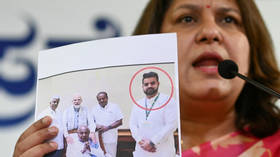New Zealand mandates jargon cutback

Government officials in New Zealand will be required to cut back on jargon and “complicated English words” in their public-facing messaging, under the Plain Language Bill passed by Parliament on Wednesday. It requires royal assent to take effect.
The legislation defines plain language as “clear, concise and well organized” language that is “appropriate to the intended audience.” All reporting agencies will be required to appoint “plain language officers” responsible for ensuring compliance and interfacing with the public.
These speech police will report to the Public Service Commissioner within six months of the law taking effect with their findings, and will deliver yearly compliance reports.
The measure aims to create a “more inclusive democracy” by ensuring those who speak English as a second language, who are marginally literate, or have disabilities can participate in government. Backed by the Labour, Green, and Maori parties, it has met with opposition from the National and ACT parties, with National MP Simeon Brown describing it as “a solution looking for a problem.”
The legislation will create bureaucracy by adding an unnecessary layer of civil servants at a time when the state employs a record number of people, critics said, complaining about a lack of enforcement protocols and arguing that a law shouldn’t be needed to motivate officials to speak plainly.
The benefits apparently outweigh the risks for the majority of New Zealand MPs, however. “People living in New Zealand have a right to understand what the government is asking them to do, and what their rights are,” Labour MP Rachel Boyack said during a debate on the issue.












